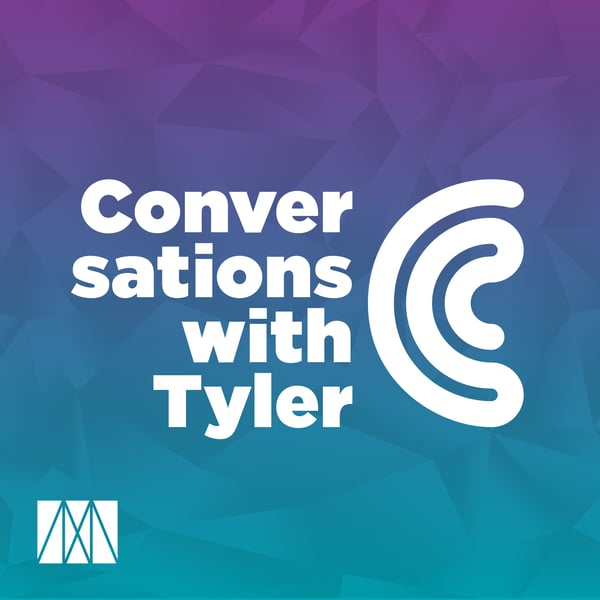Noel Johnson and Mark Koyama on *Persecution and Toleration*
Conversations with Tyler
Conversations with Tyler
4.8 • 2.4K Ratings
🗓️ 30 January 2019
⏱️ 76 minutes
🧾️ Download transcript
Summary
How did religious freedom emerge — and why did it arrive so late? In their forthcoming book, fellow Mason economists Noel Johnson and Mark Koyama argue that while most focus on the role of liberal ideas in establishing religious freedom, it was instead institutional changes — and the growth of state capacity in particular — that played the decisive role.
In their conversation with Tyler, Johnson and Koyama discuss the ‘long road to religious freedom’ and more, including the link between bad weather and Jewish persecution, why China evolved into such a large political unit, whether the Black Death proves Paul Romer wrong, scapegoating, usury prohibitions in history, and the economic impact of volcanic eruptions.
Read a full transcript enhanced with helpful links.
Recorded January 17th, 2019
Other ways to connect
- Follow us on Twitter and Instagram
- Follow Tyler on Twitter
- Follow Mark on Twitter
- Email us: [email protected]
- Subscribe at our newsletter page to have the latest Conversations with Tyler news sent straight to your inbox.
Transcript
Click on a timestamp to play from that location
| 0:00.0 | Conversations with Tyler is produced by the Mercatus Center at George Mason University, |
| 0:08.4 | bridging the gap between academic ideas and real-world problems. |
| 0:12.5 | Learn more at mercatis.org. |
| 0:15.2 | And for more conversations, including videos, transcripts, and upcoming dates, visit |
| 0:20.4 | ConversationsWithT Tyler.com. |
| 0:30.8 | Hello. Today we're doing a Conversations with Tyler with two authors of a new book called |
| 0:36.8 | Persecution and Toleration, The Long Road to Religious Freedom, published by Cambridge University Press. |
| 0:43.2 | They also happen to be two of my favorite colleagues at George Mason and Mercatus. |
| 0:48.7 | They're both very well-known economic historians, and today we have with us |
| 0:53.2 | Noel Johnson and Mark Koyama. We're going to start with Noel Johnson. Ready? |
| 0:58.8 | I'm ready. Thank you for having me on. A lot of historians have suggested that anti-semitism |
| 1:04.4 | picked up in the Renaissance compared to medieval times. Is that true? And if so, why did that happen? |
| 1:10.4 | So by the time of the Renaissance, anti-semitism was picking up. So one myth that a lot of people |
| 1:17.8 | believe is that there was a tremendous amount of religious persecution that was going on |
| 1:24.1 | during, say, the early Middle Ages to the late Middle Ages, up until, say, 1200 or 1300. By the |
| 1:30.1 | time you get to the Renaissance, there is more tension that's emerging in Europe, in part because |
| 1:39.1 | of states growing more powerful, rise in state capacity. So states are expanding their territory, |
| 1:45.9 | states are attempting to impose themselves more and different parts of life, and this is |
| 1:52.2 | starting to generate certain tensions. This is sometimes called the rise of the persecuting state. |
| 1:58.3 | If I think of the Renaissance as overall more capitalistic than the Middle Ages, |
| 2:03.4 | then there's a kind of paradox that arises in my mind. It seems that across countries, |
| 2:07.7 | at any point in time, the more capitalistic countries seem to be more tolerant. The Dutch |
... |
Please login to see the full transcript.
Disclaimer: The podcast and artwork embedded on this page are from Conversations with Tyler, and are the property of its owner and not affiliated with or endorsed by Tapesearch.
Generated transcripts are the property of Conversations with Tyler and are distributed freely under the Fair Use doctrine. Transcripts generated by Tapesearch are not guaranteed to be accurate.
Copyright © Tapesearch 2025.

